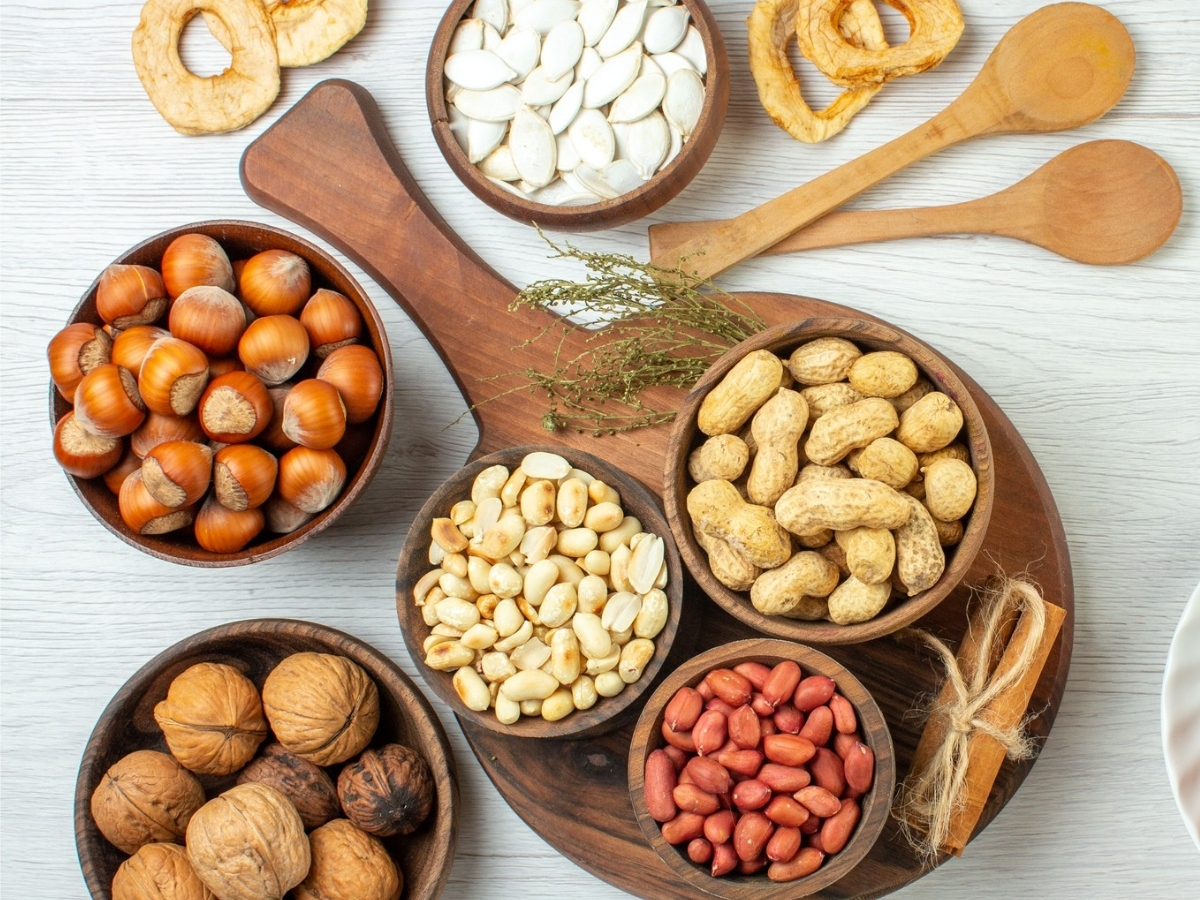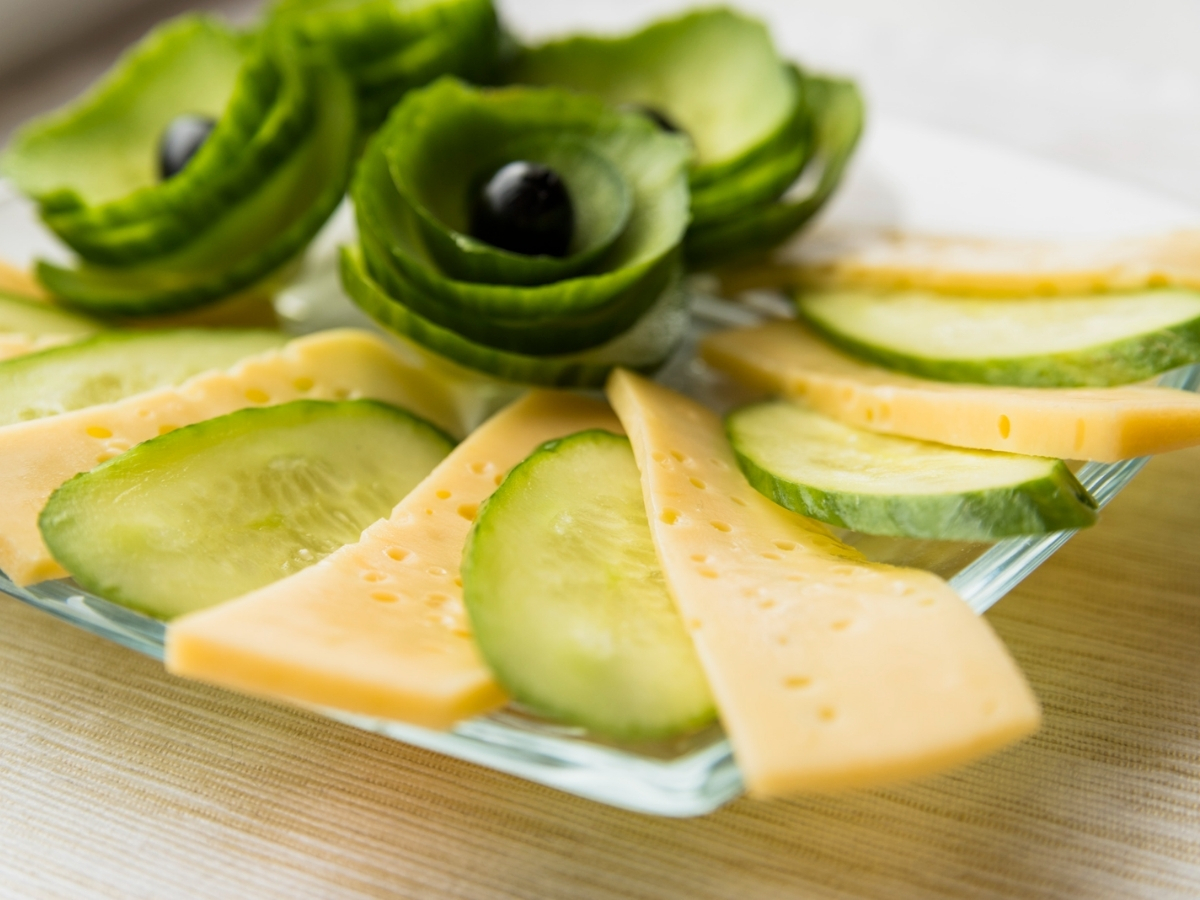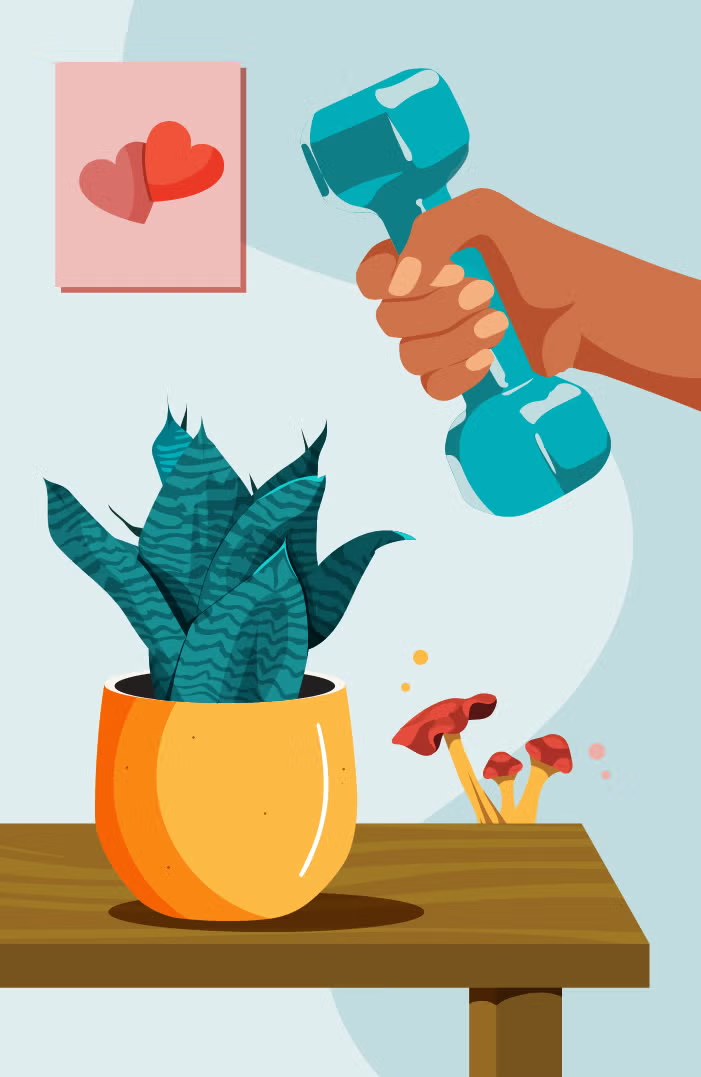Looking for diabetes-friendly snacks that are both tasty and help keep your blood sugar in check? At Natural Health, we understand the daily challenge of managing cravings while maintaining stable glucose levels. In this article, we’ve rounded up the best snacks for diabetes, nutritious, satisfying, and smart choices to support your health and energy throughout the day.
Snacks for diabetics type 1

For individuals living with type 1 diabetes, managing blood sugar levels requires careful planning—especially when it comes to carbohydrates. On average, each meal should contain 45–60 grams of carbohydrates, while snacks should typically range between 15–20 grams. [1]
When choosing snacks, it’s important to focus not just on the amount of carbs, but also on their quality. Ideal snacks for people with type 1 diabetes should include
- Moderate carbs (15–20g): to help maintain energy and prevent blood sugar dips.
- High in protein: Protein helps stabilize blood sugar by slowing the absorption of glucose into the bloodstream.
- Rich in fiber: Fiber supports digestion, promotes fullness, and slows down the breakdown of carbohydrates, leading to more stable blood sugar levels.
Smart snack options for type 1 diabetes:
- Greek yogurt with berries (protein + fiber + moderate carbs)
- Apple slices with peanut butter (fiber + healthy fat + protein)
- Whole-grain crackers with low-fat cheese
- A boiled egg with a small banana
- Roasted chickpeas or edamame
- A small smoothie made with unsweetened almond milk, spinach, and a few pieces of fruit
These snacks for diabetes not only satisfy hunger between meals but also support better blood sugar control and overall energy balance. To make the most of your snack choices, aim for options that contain 5 grams of carbohydrates or less—or stick to the 6 to 15-gram range if the snack includes a good amount of fiber.
Snacks with 5g or less of carbohydrates
| Serving Size | Food | Carbohydrates (g) |
| ¼ cup | chopped walnuts | 4g |
| 1 slice | low-fat Swiss cheese | 1g |
| ½ large | tomato | 3g |
| ¼ cup | shredded lettuce | 0g |
| 1 string stick | Low-fat cheese | 1g |
| 4 ounces | low-sodium turkey meat | 1g |
| 6 ounces | baked chicken breast | 0g |
Snacks with 6 ~ 15g of carbohydrates
| Serving Size | Food | Carbohydrates (g) |
| 1 cup | low-fat milk | 13g |
| 8 baby | carrots | 7g |
| 6 ounces | plain fat-free Greek yogurt | 7g |
| ¾ cup | blueberries | 15g |
| 1 cup | steamed broccoli | 12g |
| 1 small | tortilla | 15g |
| ½ | pita | 6~16g |
| 1 | waffle | 4-inch square or 4 inches across |
| 3 | graham crackers | 2½ inch squares |
| 1 | biscuit | 2½ inches across |
| 3 cups | popcorn, popped | 18g |
| pretzels | ¾ oz | |
| 2 | rice cakes | 4 inches across |
| 1 extra-small | banana | 19g |
| ½ cup | canned fruit | 15g |
| 1 medium fruit | peach, orange, pear,… | 6oz |
| 17 small | grapes | 3oz |
| 1¼ cup | strawberries | 16.2g |
Snacks for diabetics type 2
While individuals with type 1 diabetes must pay close attention to insulin balance and carbohydrate intake, people with type 2 diabetes face a slightly different challenge, managing insulin resistance and maintaining steady blood sugar levels through diet and lifestyle.
One of the most effective ways to support this is by choosing the right kinds of snacks throughout the day. Let’s take a closer look at smart snacking options specifically tailored for individuals with type 2 diabetes.
High protein snacks
- roasted chickpeas
- beans, such as kidney, black, or pinto beans
- edamame
- tempeh and tofu
- soy nuts
- turkey slices
- smoked salmon slices
Individual protein needs can vary depending on factors like body size, activity level, overall health, and specific dietary goals. In general, protein should make up about 10–35% of a person’s total daily caloric intake.

High fiber snacks
- smoothies with kale
- sprouted, whole grain breads
- whole grain, bean, or chickpea pasta
- oatmeal
- spinach and other vegetable chips
- carrots dipped in hummus
- sweet potato
Fiber is a vital component of a healthy diet, particularly for people managing or aiming to prevent type 2 diabetes. A 2022 systematic review and meta-analysis found that diets high in whole grains, a key source of dietary fiber, may significantly lower the risk of developing type 2 diabetes.[3] Incorporating high-fiber snacks for diabetes into your daily routine can be a smart way to meet your nutritional needs.
For optimal health, women aged 19–30 are recommended to consume at least 28 grams of fiber per day, while men in the same age group should aim for 34 grams. After age 30, the daily fiber requirement decreases slightly, but it remains an important part of a balanced diet.
Healthy fat snacks
- oily fish, such as mackerel and sardines
- sesame, flaxseed, or chia seeds
- almonds, pistachios, or walnuts
- avocado
- olives

A 2018 review found that certain types of fat, particularly the healthy fats found in oily fish, may help lower the risk of developing type 2 diabetes.[4] For most adults, 20–35% of daily calories should come from fat, with less than 10% from saturated fat. However, individual needs may vary depending on age, activity level, and overall health. While healthy fats are important for managing blood sugar during the day, what you eat in the evening can be just as impactful. Choosing the right snacks for diabetes at night can help stabilize blood glucose levels while you sleep, reduce the risk of overnight lows, and support better morning readings.
Nighttime snacks
People can adjust their snacking habits based on their weight management goals and how their blood sugar tends to behave overnight. The ADA recommends working with a healthcare team to create a personalized meal plan, which may include snacks and their optimal timing.[5]
In some cases, including a small, well-chosen snack before bedtime can help prevent nighttime drops in blood sugar, even though this approach is sometimes overlooked. Choosing snacks for diabetes of protein, healthy fats, and fiber may help reduce overnight glucose fluctuations and promote more stable blood sugar levels by morning.
- A handful of nuts
- A hard-boiled egg
- Low-fat cheese and whole-wheat crackers
- Baby carrots, cherry tomatoes, or cucumber slices
- Celery sticks with hummus
- Air-popped popcorn
- Roasted chickpeas
- Sliced apple and peanut butter
- Sugar-free Greek yogurt
These snacks are lower in carbohydrates and typically contain higher amounts of protein or healthy fats, which help support stable blood sugar levels. In general, enjoying a small snack before bedtime is considered safe for most people with diabetes. The key is to keep portions modest and choose options that are low in carbs, to avoid unwanted blood sugar spikes during the night.
Packaged snacks for diabetics
Although whole-food snacks are often the healthiest choice, there are times when packaged options are simply more convenient, or you might just want a change of pace. The good news is, there are plenty of packaged snacks available that not only satisfy your cravings but also support stable blood sugar levels and overall health.
While whole, unprocessed foods are often best, there are many convenient packaged snacks that are suitable for people with diabetes, especially when you’re on the go.
The key is to choose products that are:
- Low in added sugars
- Moderate in carbohydrates (ideally 15g or less per serving)
- High in fiber and/or protein
- Made with whole ingredients
Tips When Choosing Packaged Snacks:
- Read the nutrition label carefully – watch for hidden sugars, high sodium, and refined carbs.
- Choose snacks with at least 3–5g of protein or fiber to help control blood sugar.
- Avoid snacks with high-fructose corn syrup, trans fats, or long ingredient lists filled with additives.
By keeping these tips in mind when selecting packaged snacks, you can make smarter choices that support steady blood sugar levels and overall health. For those looking to reduce their sugar intake even further, especially people managing diabetes, exploring sugar-free snack options can be a great next step. Let’s take a look at some sugar-free snacks for diabetics that are both nutritious and satisfying.
Sugar-free snacks for diabetics
When choosing sugar-free snacks, it’s important to focus on items that are not only free from sugar but also contain nutritional value, such as protein, fiber, and healthy fats to help you stay full and energized.
Here are some smart, satisfying options:
- Hard-boiled eggs – Packed with protein, zero sugar
- Cheese sticks or mini cheese rounds – Low-carb and filling
- Nuts and seeds (unsalted, unflavored) – Almonds, walnuts, sunflower seeds
- Plain Greek yogurt (unsweetened) – Add cinnamon or a few berries for flavor
- Celery sticks with peanut butter – A classic high-protein, low-sugar combo
- Cucumber slices with hummus – Crunchy and refreshing
- Beef jerky (sugar-free varieties) – Look for brands without added sugars
- Sugar-free gelatin or pudding (with low-carb sweeteners) – A dessert-like treat
- Avocado slices or guacamole with veggie sticks – Full of fiber and healthy fat
- Roasted chickpeas or edamame (unsweetened) – Crunchy, satisfying, and nutritious

Sweet snacks for diabetics
For people with diabetes, satisfying a sweet tooth while keeping blood sugar in check can be tricky. not just about avoiding added sugars and refined carbs — it’s also important to choose snacks for diabetes that provide nutritional benefits, such as being rich in fiber, protein, and healthy fats to support more stable glucose levels.
While it might seem challenging, the good news is that there are plenty of delicious and diabetes-friendly sweet snack options — many of which can be made at home with just a few simple ingredients. Here are 11+ easy and nutritious sweet treats that are perfect for people with diabetes:
- Dark chocolate
- Pears
- Apples
- Grapes
- Greek yogurt
- Chia pudding
- Low carb energy bites
- Cottage cheese fruit bowl
- Trail mix
- Banana ice cream
- Protein smoothie
Tips for healthy snacking
Eating healthy isn’t just about picking the right foods, it also means paying attention to things like hydration and how to handle cravings in a smart way. Here are a few strategies to support healthy snacking for people with diabetes:
Limit soda, drink water instead
Water is essential not only for overall health but also for managing appetite. A 2021 systematic review and meta-analysis found that drinking enough water may help reduce the risk of type 2 diabetes.[6]
Sipping water throughout the day can help you feel full and reduce unnecessary snacking. Replacing sugary beverages like soda and sweetened juices with plain water or unsweetened drinks is a simple, effective step.
Limit processed foods
Packaged and highly processed snacks often contain excess calories, sugar, sodium, and unhealthy fats.[7] These ingredients can negatively impact blood sugar control and overall health.
Always read food labels carefully and prioritize snacks made with whole, minimally processed ingredients whenever possible.
Follow a routine
Having a structured meal and snack plan can help you manage hunger, avoid blood sugar spikes and crashes, and stay on track with your nutritional goals.
Spacing your meals and snacks evenly throughout the day also reduces the risk of overeating and helps maintain more stable energy levels.
Natural Health understands that managing diabetes doesn’t mean giving up snacks altogether. In fact, with the right choices, low in sugar, nutrient-dense, and balanced in carbs, snacks for diabetes can play a valuable role in supporting better blood sugar control and a healthier lifestyle. Whether you’re at home, at work, or looking for a bedtime bite, you can enjoy snacks for diabetes that are not only delicious but also help keep your glucose levels in check.


Last medically reviewed on
How we reviewed this article:
Reference
[1] Carbohydrate Counting; University Hospitals
[2] Type 1 Diabetes: What Can I Have For A Snack?; HealthMatch; Dr. Dina Elsalamony, MD, MScPH; 2022
[3] Consumption of whole grains and risk of type 2 diabetes: A comprehensive systematic review and dose–response meta‐analysis of prospective cohort studies; Faezeh Ghanbari‐Gohari, Seyed Mohammad Mousavi, Ahmad Esmaillzadeh; 2022
[4] Dietary Fat and Risk for Type 2 Diabetes: a Review of Recent Research; Beth H Rice Bradley; 2018
[5] 5. Lifestyle Management: Standards of Medical Care in Diabetes—2019; American Diabetes Association; 2018
[6] Water intake and risk of type 2 diabetes: A systematic review and meta-analysis of observational studies; Nasim Janbozorgi, Ramesh Allipour, Kurosh Djafarian, Sakineh Shab-Bidar, Mostafa Badeli, Maryam Safabakhsh; 2018
[7] Ultra-processed food and risk of type 2 diabetes: a systematic review and meta-analysis of longitudinal studies; Felipe Mendes Delpino , Lílian Munhoz Figueiredo , Renata Moraes Bielemann , Bruna Gonçalves Cordeiro da Silva , Francine Silva dos Santos , Gicele Costa Mintem , Thaynã Ramos Flores , Ricardo Alexandre Arcêncio , Bruno Pereira Nunes; 2022
Share this article
Read this next
Is water lemon good for diabetes? What should you know
Lemon water is good for diabetes, not just because it’s refreshing, but because it offers real support for blood sugar control. With zero added sugar, rich in vitamin C and antioxidants, it may help improve hydration, aid digestion, and reduce post-meal blood sugar spikes. At Natural Health, we break down how to make lemon water…
Apple cider vinegar for diabetes: The research says and tips to use
At Natural Health, we explore the growing interest in apple cider vinegar for diabetes. Studies suggest it may help improve insulin sensitivity and lower blood sugar levels after meals. This article explains how apple cider vinegar works, how to use it safely, and what people with diabetes need to know before adding it to their…
Is sweet corn good for diabetes? Dietitians explain
At Natural Health, we know many people managing blood sugar often ask, is sweet corn good for diabetes? The short answer: YES, with the right portion. Corn contains fiber, vitamins, and antioxidants that support overall health. In this guide, we break down how corn fits into a diabetes-friendly diet and how to enjoy it without…